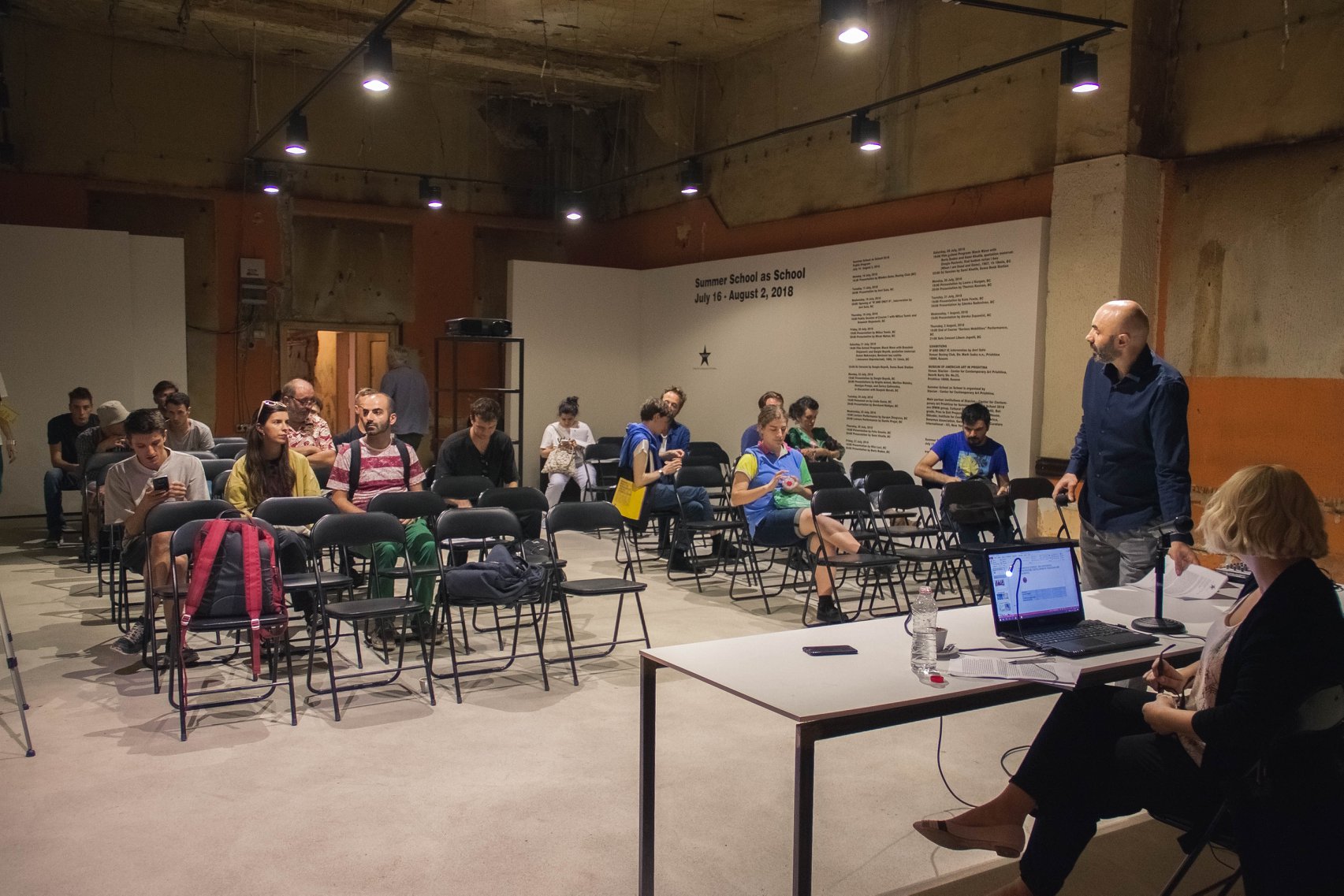
Nita Luci at Summer School as School 2018
July 27, 2018, 19:00
Venue: Boxing Club
Summer School as School
July 16 – August 2, 2018
Stacion – Center for Contemporary Art Prishtina is pleased to announce the presentation “Cognitive Justice: De-Centering Participatory Development through Art in Kosovo” by Nita Luci, part of Summer School as School 2018 Public Program.
In 2015, Haveit, a feminist art collective of four artists from Pristina, performed a direct intervention into the assumed sine-qua-non of Albanian culture, namely its tradition of customary law. In a video performance, the artists pour flour over a copy of the Kanun, a codified text of customary law, spreading it with a rolling pin over the book copy. Tager, the title of the art work, is a performance of women’s labor over the persistency of patriarchal dominance of socio-cultural relations. As such it presents one of a series of aesthetics and political challenges to the existing gender ideology in Kosovo, and globally. However, the social practices of Kanun also present a knowledge that have at times placed Kosovar society in the path of modernity while at other times defined its “backwardness.” In this regard, this paper employs the concept of cognitive justice as a principle for the equal treatment of all forms of knowledge. Such a proposal goes beyond the critique to scientific claims to universality, and specifically treats development as a form of violence conducted over ways of knowing, whether through state, multistate state or non-governmental actors. We draw from this concept, without asserting a normative cultural relativism, in order to point to the structural asymmetries that position aesthetic articulations and repertoires.
We argue that aesthetic-political articulations permeate Kosovar society, while state and international funding streams and, at times, conflicting political demands influence the methods and outcomes of arts-based practices. Specifically, the paper aims to show the connections, mobility and exchange as well as the divergences, rigidities and exclusionary practices between centre and periphery inside and beyond Kosovo. Based on ethnographic and participatory action research we conduct a comparison of concepts and practices through which independent, arts-based CSOs, and state-sponsored, institutional youth centres in Kosovo reach out to disadvantaged youth. We argue that these, and other questions, require reflection upon the ways historical contingencies have shaped underpining practices, concepts, and politics of such work.
Nita Luci is a lecturer at the departments of Anthropology, Sociology and Contemporary Art at the University of Prishtina. She holds a Ph.D. in Anthropology (University of Michigan, Ann Arbor). Her research includes topics of gender and manhood, social and political movements, state and post-socialism, nationalism, contemporary art, military intervention, memory and violence. In 2013 she co-founded the University Program for Gender Studies and Research, UP, which she currently co-chairs. In 2013 she was visiting research scholar and fellow at the Gender Research Institute at Dartmouth College. In addition to her university engagements she also serves on the boards of a number of civil-society organizations in Kosovo focusing on gender, LGBT rights, gender based-violence, research and activism. Selected publications include The Making of Citizenship Against Corruption in Kosovo: Protest, Lies, and the Public Good (Edward Elgar, 2016); “Our men will not have amnesia”: Civic Engagement, Emancipation, and Gendered Public in Kosovo (co-authored with Linda Gusia, CEU Press 2014); Un/welcomed Guests: NATO Intervention in Kosova (Routledge, 2011); Events and Sites of Difference: Mark-ing Self and Other in Kosovo (co-authored with Predrag Markovic, Ashgate 2009); Superfluity: Cultural Policies and Contemporary Art (2008); The Politics of Remembrance and Belonging: Life Histories of Albanian Women in Kosova (co-authored with Vjollca Krasniqi, 2006); Transitions and Tradition: Constructions of Gender, Nation and Family in Kosova (LitVerlang 2005); Das Schweigen der Frauen: Genderkonstruktionen und Genderdynamiken in Kosova vor und nach dem Krieg (LitVerlang, 2004); and Endangering Masculinity in Kosovo: Can Albanian Women Say No? (2002).